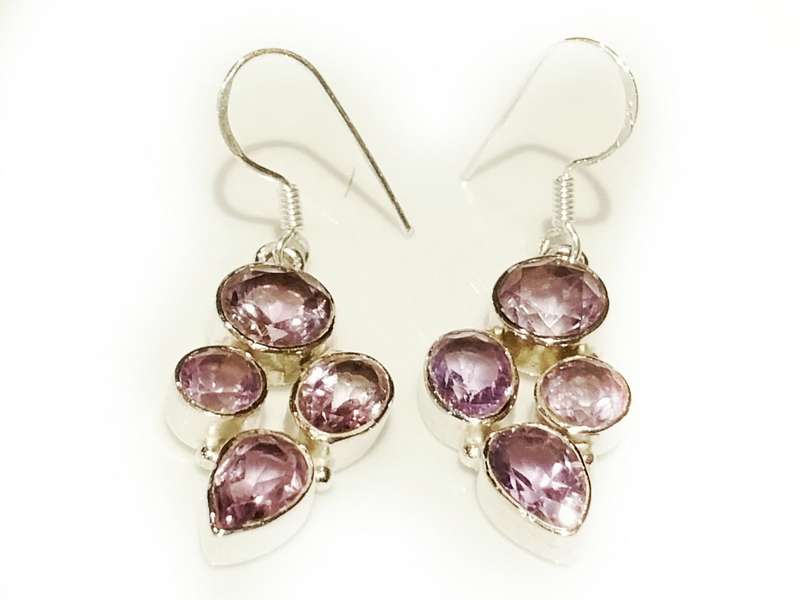
4 stone amethyst earring pair in 925 silver 25mm without hook
Check my rate
| Main centres: | 1-3 business days |
| Regional areas: | 3-4 business days |
| Remote areas: | 3-5 business days |

| Main centres: | 1-3 business days |
| Regional areas: | 3-4 business days |
| Remote areas: | 3-5 business days |
A large number of further miraculous powers are attributed to the amethyst in all sorts of cultures. It was said to protect crops against tempests and locusts, bring good fortune in war and in the hunt, drive out evil spirits and inspire the intellect. A little study of the works of Pliny will reveal that this gemstone, if worn round the neck on a cord made from dog's hair, affords protection against snakebite. Later, Hieronymus even reported that eagles placed an amethyst in their nest in order to protect their young from the selfsame danger. Apart from these powers, gemstone therapists say that the amethyst has a sobering and cleansing effect. Amethyst has also been said to quell excessive stomach acid and, according to Hildegard von Bingen, served to combat insect bites and beautify the skin. But the amethyst not only had a firm niche in medicine; it was also esteemed as a stone of friendship. And since it was thought to put the wearer in a chaste frame of mind and symbolise trust and piety, the amethyst came to occupy a very prominent position in the ornaments of the Catholic clergy over the centuries. It was the stone of bishops and cardinals; we find it in prelates' crosses and in the so-called Papal Ring (Italian, 15th century) in the Jewellery Museum in Pforzheim.